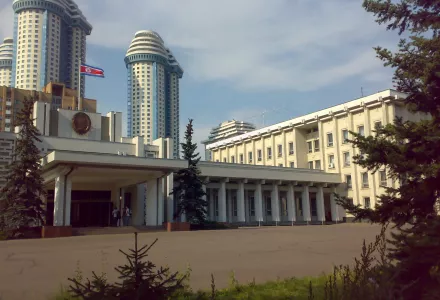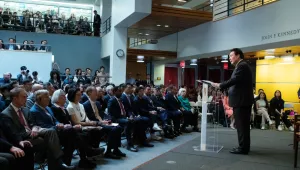
North Korea frequently uses diplomatic missions, diplomats and intelligence officers in its Weapons of Mass Destruction (WMD) proliferation and arms trafficking networks. The paper places the use of these assets in historical context, provides a basic typology of their role, and considers why they have featured in North Korea’s networks. The paper identifies a number of trends surrounding the use of North Korean missions – including the types and locations of missions featuring in specific types of proliferation and arms dealing activities, the prominence of larger missions and use of third country and regional hubs. It argues that the persistence of these assets in the DPRK’s networks is largely a result of convenience and diplomatic immunity. The paper concludes by recommending further action to counter these assets while arguing that the phenomenon will continue to be a challenging feature of North Korea’s proliferation and arms trading activities.
Salisbury, Daniel . “Spies, Diplomats and Deceit: Exploring the Persistent Role of Diplomatic Missions in North Korea’s WMD Proliferation and Arms Trafficking Networks.” Asian Security, July 5, 2021
The full text of this publication is available via Asian Security.




